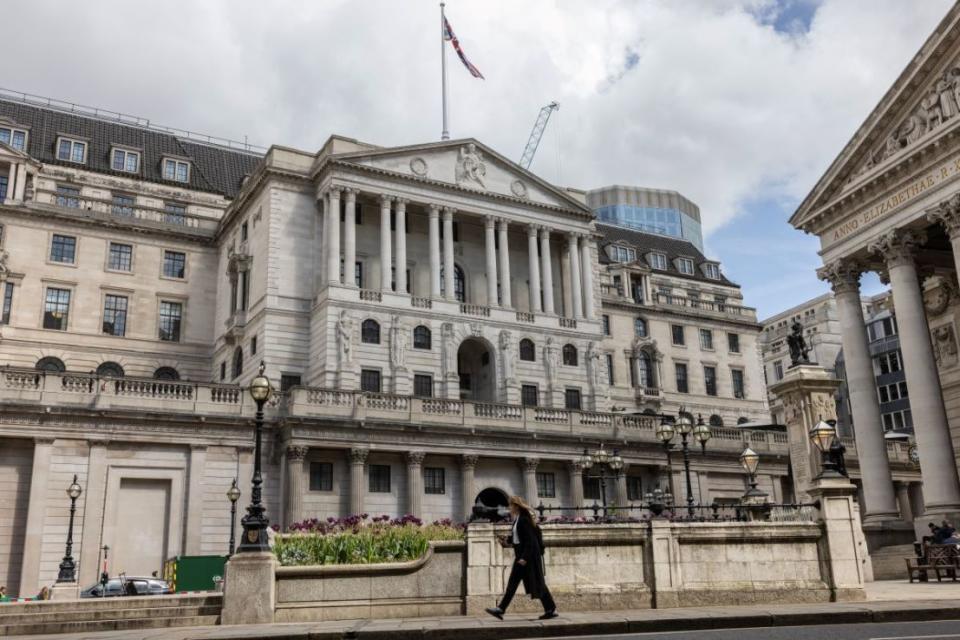Bank of England to hold rates even as inflation looks set to fall to two per cent

The Bank of England will leave interest rates on hold for a seventh consecutive meeting when rate-setters meet on Thursday, meaning the Bank Rate will remain at its highest level in 16 years.
The rate-setting Monetary Policy Committee (MPC) left the door open for a June cut at its last meeting in May, but since then a number of data releases have pointed to stubborn inflationary pressures.
“The BoE made it clear that the economic data will determine when it starts to reduce Bank Rate,” Ruth Gregory, deputy chief UK economist at Capital Economics, said. “And the tone of the incoming data since then has been disappointing.”
April’s inflation release showed that services inflation, which the Bank has singled out as a crucial metric of domestic price pressures, fell much less than expected. Services inflation remains around six per cent, more than twice the level that is consistent with the two per cent inflation target.
Similarly, the latest labour market figures, released last week, showed that in the private sector was running at 5.8 per cent.
These two measures are crucial for understanding the underlying inflationary dynamics in the economy. With both measures coming in slightly ahead of expectations, policymakers are unlikely to be confident enough to cut interest rates this week.
On top of this, most economists think it is very unlikely that the Bank of England would be willing to start cutting interest rates in the middle of an election campaign.
Any decision to cut rates just weeks before polling day could have dragged the Bank into the political debate. Members of the MPC have also had to cancel their public speeches during the election campaign, making it much more difficult for them to explain their approach to policy-making.
All of this leaves the Bank in a holding position. Policymakers know that the next move will be a rate cut but do not know exactly when it will come.
Most economists did not expect any more guidance beyond what was provided in May. Analysts at Barclays said there would be “little to no change in guidance from the MPC this month.”
Although interest rates will remain at 5.25 per cent, some commentators still expect the Bank to be able to cut them in August.
A lot depends on May’s inflation data, released just a day before the Bank’s meeting. Economists widely expect the headline rate to return to two per cent for the first time since July 2021. Services inflation is also expected to fall to around 5.5 per cent.
The European Central Bank (ECB) cut interest rates for the first time in five years earlier this month but the Fed opted to hold again, pointing to only “modest” progress on inflation.

 Yahoo Finance
Yahoo Finance 